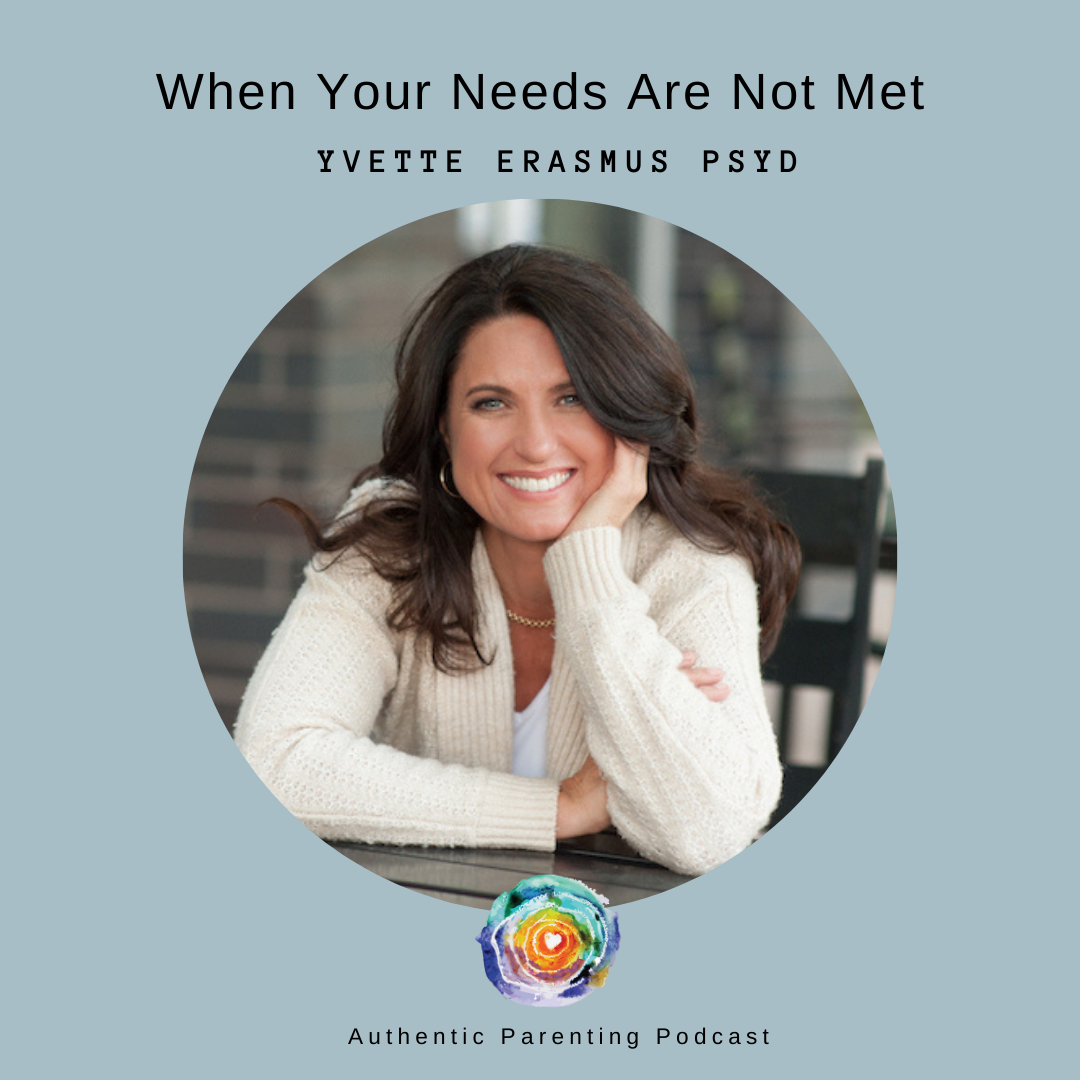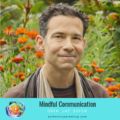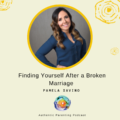
The way we are spoken to as children becomes the way we speak to ourselves and others as adults, but as we become more aware of how we both think and speak habitually, we also develop more choice and creativity about who we want to be today.
When we soften our heated conversations with loved ones and deeply listen for what hurts instead of taking things too personally, we nurture compassion in our relationships.
I had the pleasure of exploring ideas like this in an open-hearted conversation with Yvette Erasmus on the Authentic Parenting podcast. We explored various aspects of the internal work of nonviolence and compassion that supports meaningful shifts in our relationships, and I’d love to share it with you this week.
Here are some key points in our conversation:
7:30 – Key aspects of the developmental journey from unconscious to conscious living and loving.
13:59 – How to shift from victim-consciousness to more choice and self-compassion.
22:30 – How to respond to defensive strategies, especially in the context of parent-child relationships; hearing the message before correcting how it was delivered.
28:45 – Diving into “needs consciousness”: getting our needs met, how we were parented, the disconnect from feelings and intrinsic motivations.
35:04 – “Connecting with our needs is one of the most fundamental internal guidance systems that we can develop to inform our own evolutionary journey to becoming free and loving and joyful beings that are contributing in really meaningful ways to one another.”
36:10 – “The needs that were chronically unmet in our lives are the ones that are going to come with the most urgency and pressure and demand energy inside of ourselves.”
38:00 – What to do when your needs don’t get met, how to sit with distress of your life and the importance of sitting next to discomfort, new moves to try if you’d like to get your needs well met.
45:12 – Making peace with how our attachments and childhood experiences may impact our romantic partnerships.
47:50 – How to open a conversation using reveal/suggestion and a word-by-word script to help you set clear intentions.
54:16 – “My primary intention is to learn to love the world and myself as it is with a deep trust that when I’m able to love myself as it is and other people as they are, those are the conditions needed for healing and growth.”
55:14 – “We do a lot of violence to ourselves and one another when we expect ourselves and other people to have capacities that they don’t yet have.”
57:45 – What is a “real feeling”? The power of using language more accurately, how to identify thoughts that masquerade as feelings, and a powerful tool for going a layer deeper!
1:12:05 – Practical tools to nurture your compassion and self-discovery.
1:16:30 – What would I say to myself as a new mom.
About my guest
Dr. Yvette Erasmus is a psychologist, teacher and consultant, specializing in transformative learning. A sought after relational-intelligence expert with over 3 decades of real-world experience in human transformation, healing, growth and learning, Dr. Erasmus helps us embrace and enjoy our differences, while staying grounded in our fundamental unity. Her work is dedicated to bridging differences, and to bringing whatever is divided and fragmented back into wholeness, integrity and harmony.
Resources and links
- Yvette’s website
- Follow her on Facebook
- Follow her on YouTube
- The Center for Non-Violent Communication
- Non-Violent Communication by Marshal Rosenberg
Other episodes you may like
- (Ep. 168) Mindful Communication: How To Find Your Voice, Speak Your Truth and Listen Deeply with Oren Jay Sofer
- (Ep. 166) What NOT To Say to Kids’s and How to Say “No” without Actually Saying It
- (Ep. 278) What Your Children Need Most From You with Anna Seewald
- (Ep. 269) Forgiveness with Fred Luskin
- (Ep. 267) The Power of Discord with Ed Tronick and Claudia Gold
Follow the podcast
- Apple Podcasts
- Google Podcasts
- Spotify
- Pandora
- Amazon Music
- elsewhere
Support the show
- Write a review on Apple Podcasts
- Become a patron on Patreon.com and get supporter only benefits
- Make a one-time donation



